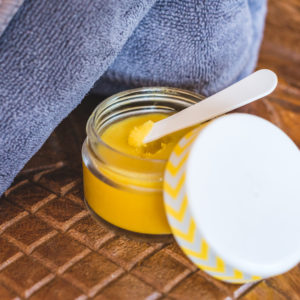Fennel Essential Oil During Pregnancy
One of the most disputed topics about essential oils is how to use them during pregnancy. Let’s take a closer look at fennel essential oil during pregnancy. As always, we will be sure to look at how scientists conducted the studies and how their findings they may be applicable to modern women.
Studies of Fennel Essential Oil During Times of Fertility
To become pregnant, a woman needs balanced levels of estrogen and progesterone. Any substance that disrupts this balance changes the chances to become pregnant. Fennel essential oil is high in E-anethole, and there have been mulitple studies that suggest E-anethole and whole fennel essential oil may have estrogenic effects.
There is a very old study that demonstrates very weak estrogen-like activity of E-anethole. There is another study that E-anethole can form polymers that act on estrogen receptors. Metabolites can weakly displace the E-anethole from receptor sites, and may cause an increase in uterine weight in immature rats. While fennel has been shown to have some weak estrogen-like activity, it did not lead to secretion of prolactin in vitro. Cell receptor activation was approximately 5–8 times weaker than 17β-estradiol. Given that these were done either in vitro or in very young rats, the applicability to women is unknown.
This suggests that fennel may have an impact on female fertility and on the estrogen receptor. However, if it does so, it does so very weakly. Some authors argue that fennel should not be used during pregnancy or while trying to become pregnant for these reasons. This also extends to people with estrogen-linked cancers, and may authors suggest against the use of fennel essential oil following an estrogen-linked cancer.
Fennel Essential Oil During Embryo Growth
Studies have shown sweet fennel oil to inhibit cell bud differentiation when applied directly into a limb bud culture. However, this was likely due to toxicity following direct exposure of the cells to essential oil. This is distinctly different than maternal ingestion or application followed by processing in the body and transfer across the placenta.
Fennel Essential Oil During Breastfeeding
Ingestion of substances high in E-anethole can lead to peaks in breast milk output approximately 2 hours after ingestion. Constituents from both foods and essential oils can pass into breast milk, and approximately 10% of ingested amounts pass into the breast milk.
Conclusion
So, what to do? You all know me well enough to know that I do not recommend for or against any essential oil in pregnancy, and that I leave it up to you to use your best judgement. Some may choose to avoid fennel essential oil during pregnancy, lactation or following an estrogen-linked cancer and others may not. Use your judgement and your knowledge of your own health background to decide what is best for your body.
References
For access to all of my oily education, ! While you’re here, check out my book, Essentials: 75 Answers to Common Questions About Essential Oils and Supplements.













